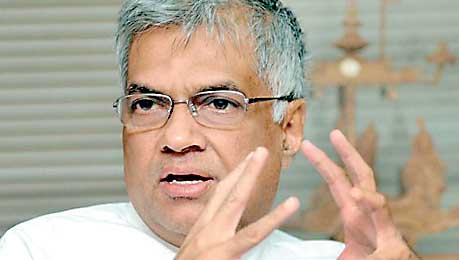Friday Feb 27, 2026
Friday Feb 27, 2026
Wednesday, 22 July 2015 00:51 - - {{hitsCtrl.values.hits}}
Temple Trees, the official residence of the Prime Minister, was never used for electioneering, Premier Ranil Wickremesinghe’s office clarified yesterday.
Transparency International Sri Lanka (TISL), the corruption watchdog, wrote to Elections Chief Mahinda Deshapriya last week to complain that Temple Trees had been used to sign memorandums of understanding between the parties of the United National Front for Good Governance (UNFGG) coalition on 12 July, constituting political activity within a State-owned residence during election season. Responding to TISL by letter, Prime Minister Wickremesinghe’s Secretary E.M.S.B. Ekananayake strongly refuted the allegation, saying the signing had taken place within the premises constituting the official ‘residence’ of the Prime Minister inside the premises. “Temple Trees constitutes three sections. One is the Prime Minister’s office. The other is the large halls where the political meeting and dansals were held during the previous administration. The third is the Prime Minister’s residence,” Ekanayake’s letter to TISL noted.
“There is no legal impediment to the Prime Minister using his residence according to his wishes,” the Secretary to the Premier said. He said that the signing on 12 July had taken place inside the Premier’s residence and not within his office premises. “Legal advice was obtained prior to the signing ceremony as to whether the event was a violation of any election laws,” the Prime Minister’s office clarified.
Furthermore, Ekanayake said that none of the politicians present at Temple Trees for the signing had been candidates in the election since their nominations had not been handed over to the Elections Department formally.
Meanwhile, Prime Minister Wickremesinghe also telephoned Elections Commissioner Deshapriya to clarify the issue and requested him to station an Elections Department official or polls monitor within the Temple Trees premises permanently to observe if any election violations were taking place.
Sri Lanka’s election laws prohibit the use of State property for election purposes. (DB)